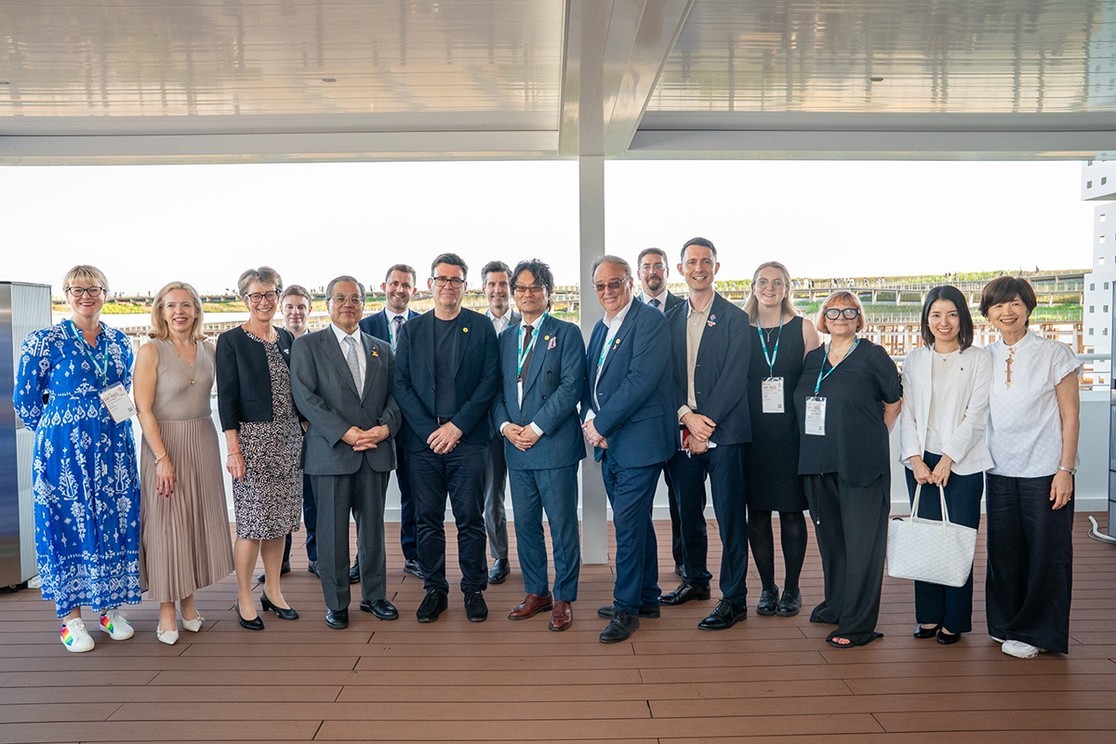Manchester to become UK’s heat pump capital with historic five-year agreement
Manchester are leading the way on low-carbon heating with plans for 64,000 heat pump installations by 2030

Greater Manchester is positioning itself as the UK’s leader in low-carbon home heating, with a bold plan to install 64,000 heat pumps by 2030.
A new five-year agreement with global manufacturer Daikin marks a major step forward, combining innovation, skills training and practical support for both homeowners and housing providers.
The initiative covers everything from social housing retrofits to grants for private landlords and homeowners, ensuring wide-reaching impact across the region.
A bold plan for greener homes
Signed at the World Expo in Osaka, the new agreement between the Greater Manchester Combined Authority (GMCA) and Daikin builds on two years of successful collaboration.
It commits both partners to rapidly scale up heat pump adoption in homes across the city-region – making Greater Manchester one of the first UK regions with a clearly defined target for installations.
The rollout includes a mix of routes to help different residents:
- A retrofit framework for social housing
- The Warmer Homes Grant, funded through GMCA’s devolved powers, which supports private landlords and homeowners with installation costs
This combination ensures that clean heating is not just for a few, but available to all.
Bring your dream home to life with expert advice, how to guides and design inspiration. Sign up for our newsletter and get two free tickets to a Homebuilding & Renovating Show near you.
Skills, support and affordability

Daikin is expanding its footprint in Greater Manchester, opening a new training centre in Trafford Park to triple its installer training capacity, from 1,400 to 4,200 people a year.
The company will also cover the cost of specialist training for 100 eligible local people each year, removing financial barriers to entering the green workforce.
To make heat pump adoption easier for households, Daikin will pilot a first-of-its-kind leasing model tailored for Greater Manchester, allowing homeowners to spread the cost of installation.
And through partnerships with local colleges, councils and housing associations, the programme will deliver community awareness sessions, technical support, and even dedicated installs for homelessness projects like Embassy Village.
Driving toward 2038 carbon neutrality
This initiative is a core part of Greater Manchester’s wider mission to become carbon neutral by 2038.
Under the new deal, Daikin will chair the region’s Low Carbon Heating Industry Group – a UK first – bringing together industry voices to accelerate heat pump adoption and shape policy locally.
Greater Manchester Mayor Andy Burnham said: “Daikin’s investment in skills and innovation is exactly the kind of partnership we need to make low-carbon heating the norm.”
Daikin UK Managing Director Tomoji Miki said: “This isn’t just about technology – it’s about making real change, in real homes, for real people. We’re proud to be helping Greater Manchester lead the way.”
With national funding support improving and installation targets now set, Greater Manchester is leading by example - putting the systems, skills and support in place to make cleaner heating a reality for thousands of homes.

News Editor Joseph has previously written for Today’s Media and Chambers & Partners, focusing on news for conveyancers and industry professionals. Joseph has just started his own self build project, building his own home on his family’s farm with planning permission for a timber frame, three-bedroom house in a one-acre field. The foundation work has already begun and he hopes to have the home built in the next year. Prior to this he renovated his family's home as well as doing several DIY projects, including installing a shower, building sheds, and livestock fences and shelters for the farm’s animals. Outside of homebuilding, Joseph loves rugby and has written for Rugby World, the world’s largest rugby magazine.
